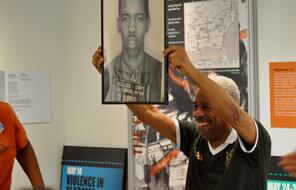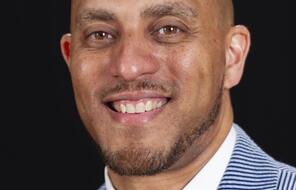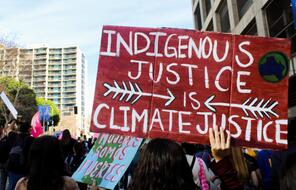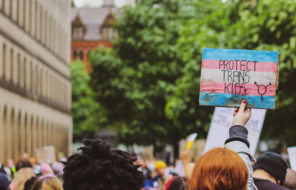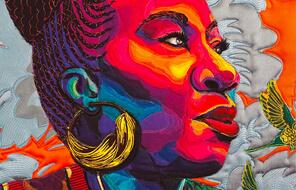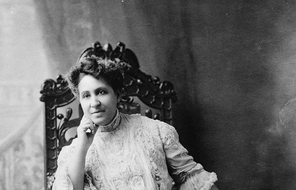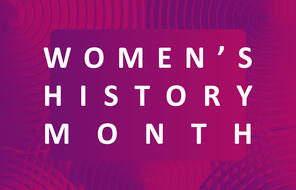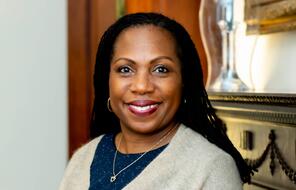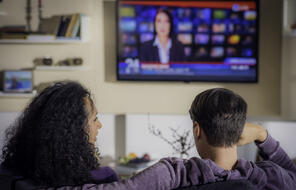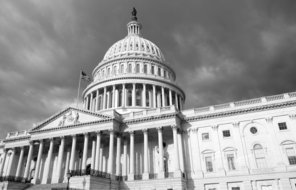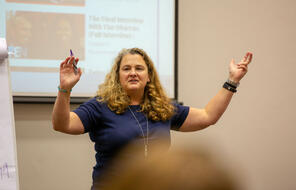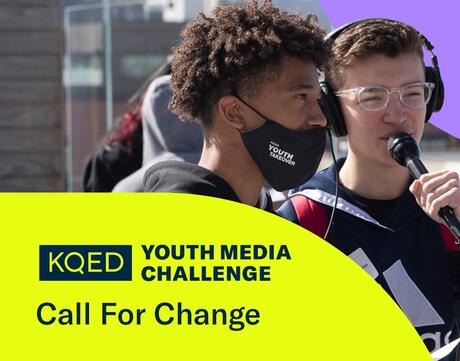
We Learn by Doing and Reflecting: Civic Voice and Action
Much like the science experiments or science fair projects you did in school, civic action projects give students the chance to apply what they have been learning, collaborate with others to solve problems, practice critical skills, build their civic voice, and develop civic agency. Young people need multiple opportunities to engage in civic action projects in order to build their belief in themselves and to see that their voices and participation matters.
Recently, Facing History has developed a new workshop in partnership with KQED titled "Youth Voice as Civic Action" which is designed to help teachers integrate these civic action projects into their approach. After attending one of these workshops last fall, the English II teachers at John Hancock College Prep School in Chicago took what they learned and began to implement new civic action projects with their students as part of a unit on activism and resistance. Together, educators Diego Diaz, Maura Nugent, Heather Pavona, Jeschelyn Pilar, and Jennifer Velazquez supported students as they investigated the history of policing in the United States and how it has shaped the criminal justice system and patterns of racial injustice today.
Throughout the unit these educators helped their students learn about the history of slave patrols, Black codes, vagrancy laws, and policing in the early United States. This helped students better understand modern examples of resistance, such as the East Los Angeles school walkouts, Black Lives Matter protests, indigenous resistance at Standing Rock, and student activism for gun control in Parkland. By connecting history and the past students were able to hone their civic agency and skills by drawing on the motivations, strategies, obstacles, successes, and lessons learned from the examples of upstanders in different periods of history.
Students then identified a topic they cared about, conducted research to understand the issue more deeply, and created an audio story to raise awareness about the issue that they published on KQED’s Youth Media Challenge website. Through this project, students were able to learn audio storytelling tools; create an audio podcast from script to recording that advocates for a change on the local, national or global level; and publish their piece reaching a broad audience. You can explore a few of the students’ projects here:
I had the chance to talk with two of the teachers, Maura Nugent and Jennifer Velazquez, about what was most impactful for their students as a result of participating in this project and for themselves as teachers.
Erica Hodgin: What do you think was most impactful to your students in terms of their civic knowledge, skills, and agency as a result of participating in this project?
Maura Nugent: Students acquired or refined research, writing, and audio creation skills with this project, but most importantly they were reminded of the importance of their voice. Whenever students create something that lives outside the space of the classroom and has an authentic audience, it ups the ante in a powerful way. It helps remind them that they have an important perspective and that their perspective is worthy of being shared in public space for others to hear and consider.
Jennifer Velazquez: I think one thing that was the most impactful was the fact that we had learned how to use rhetoric skills to convey an effective message in this unit. Typically when this happens in an English class the final result often tends to be a paper or another traditional writing assignment. With this project our students not only learned about effective persuasion skills but also got a chance to apply that knowledge on an issue that interested them and that they felt invested in to research and bring forth awareness.
Erica: What was most impactful to you as a teacher facilitating this project?
Maura: I think we grow as teachers when we try new things and relinquish some control. This can be hard, but taking that leap produces learning and growth that we can build on in the future. Although I had done civic action projects of different types with students before, I had never tried having students create and publish audio pieces as the end product, and I was nervous about trying something I did not feel an “expert” in. I definitely learned some things that I can apply the next time I do the project.
Another impactful thing for me was witnessing and experiencing the collaboration that this project entailed. The project allowed for formal structures of collaboration amongst students, but also informal collaboration as students stepped up to help each other in various ways, including technical support!
Jennifer: I think that giving students the opportunity to dive into an issue or topic that they are really interested in means they’ll have a genuine curiosity to know more. When students tap into that, they’ll want to pour all their energy to research, create, and ultimately enact change. To me this is one of the most important things I can offer in my classroom, it is the whole reason I became a teacher.
Advice from Maura and Jennifer
As you think about the rest of the school year and the ways you can support your students to apply what they have been learning to real world issues and topics they care about, here are some tips from Maura and Jennifer:
- Take the leap and try something new – “It can be intimidating to try something new, something with a real product that will live in the world, something that may require skills we ourselves haven’t mastered yet. But in my years as a teacher and trying different types of civic action projects, I have learned that you just have to take that leap and attempt something that will create space for students to (as Paulo Freire says) not only read the world but write the world. And it might be—will be—messy and imperfect the first time you try it. You will get better at it and learn things. The only way you’ll learn is if you take a leap and try!” – Maura
- We all learn by doing and reflecting – “We learn by doing and reflecting—this is true of our students and of us. So students will learn about civic action by doing civic action and reflecting on it. But also we as teachers will learn how to facilitate civic action by trying it with our students, reflecting on it, and then trying again!” – Maura
- Stay curious with your students – “Civic action is not telling kids what to think. When we open up choices for students, a kid may want to take civic action around an issue that you personally feel is problematic or maybe you feel is not as important as other issues. I think in those moments it’s important to model being a reflective and lifelong learner, as well as being empathetic and curious. It also helps to think through and be as prepared as possible for challenging or sticky moments that can come up with real life tough issues.” – Maura
- Your students are capable of troubleshooting the bumps in the road – “If you are a teacher thinking about doing a project like this, just know that your students are capable of troubleshooting the bumps in the road with this project. Give it a shot.” – Jennifer
Learn More
Discover best practices on cultivating your students’ voices and facilitating civic action projects. Join Facing History and KQED on March 6 for a workshop on Youth Voice as Civic Action. Together we will:
- Explore Facing History’s unique “From Reflection to Action: A Choosing to Participate Toolkit” designed to inspire students to take positive civic action
- Examine historical and contemporary case studies of youth-led civic action
- Practice teaching strategies and classroom activities that reinforce critical thinking and media literacy skills
- Learn audio storytelling tools and create a sample audio podcast from script to recording that advocates for a change on the local, national, or global level
- Explore publishing opportunities through KQED’s Youth Media Challenges that can connect students to an audience beyond the classroom
You can also learn more about how to get started with KQED’s Call for Change Youth Media Challenge audio commentary project by exploring these resources:
- Call for Change Election 2024 page
- Call for Change audio commentary project page
- KQED’s Youth Media Showcase
- How to submit to the showcase
As you reflect on the learning goals you have for the remainder of the year, consider how engaging your students in civic action projects can help them learn that participating in community and society involves many small choices and decisions as much as it does ambitious acts and social movements, and that they have a voice to share and a role to play.

